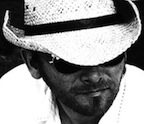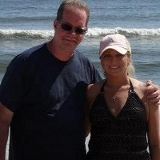David Friedländer was a wealthy and powerful jewish banker in 18th century Germany--and in all likelihood an associate of the Rothschild Banking Mafia.
While not busy amassing his ill-gotten fortune at the expense of the common German people, Friedlander was active in judeo-masonry and finding ways of promoting the emancipation of the jews in Germany--so that they could have better access to the aristocracy and the circles of "gentile" social elites.
As part of this effort, Friedlander wrote an infamous 1799 pamphlet entitled, "“Open Letter to His Reverend, Provost Teller, Councilor of the Upper Consistory in Berlin” wherein he argued for the so-called "dry baptism" of jews in Germany--by which he meant that in exchange for this superficial "conversion" to Christianity the jews would be allowed greater emancipation, especially in Prussia where they jealously coveted the society of the Prussian nobility.
Friedlander makes clear that this "dry baptism" would not be actual conversion; rather, it would be done to allay the public fears while at the same time jews would be allowed to retain all their otherwise jewish identity and "culture". Basically, he wanted his cake and eat it too--just like the converso jews did in Spain where their conversion actually afforded them greater freedom to undermine Christian society.
Friedlander's proposal was met with wide opposition not only from Germans but also from the jews themselves--and set off an infamous "pamphlet war" during which the proposal was debated on all sides.
This controversy is covered in Richard Crouter's 2004 book David Friedlander, Teller, Friedrich Schleiermacher, Wilhelm Abraham: A Debate on Jewish Emancipation and Christian Theology in Old Berlin.
http://www.h-net.org/reviews/showpdf.php?id=11129
This book is important in that it was not written by a jew--and apparently it contains the only English translations of the original pamphlets written on the first public debate over the emancipation of German jewry.
This Forum is now inactive and has been replaced by a new Christogenea Forum. You may browse here but there are no updated threads or new posts since January 1st 2017. Forum members please see THIS NOTICE for information concerning your account at the new forum.
David Friedländer's Modest Proposal: "Dry Baptism"
2 posts
• Page 1 of 1
David Friedländer's Modest Proposal: "Dry Baptism"
"No Rothschild is English. No Baruch, Morgenthau, Cohen, Lehman, Warburg, Kuhn, Kahn, Schiff, Sieff or Solomon was ever born Anglo-Saxon. And it is for this filth that you fight. It is for this filth that you murdered your Empire. It is this filth that elects, selects, your politicians." -- Ezra Pound
-

EzraLB - Posts: 935
- Joined: Fri Jun 26, 2015 9:32 am
Re: David Friedländer's Modest Proposal: "Dry Baptism"
EzraLB wrote:Friedlander's proposal was met with wide opposition not only from Germans but also from the jews themselves--and set off an infamous "pamphlet war" during which the proposal was debated on all sides.
This controversy is covered in Richard Crouter's 2004 book David Friedlander, Teller, Friedrich Schleiermacher, Wilhelm Abraham: A Debate on Jewish Emancipation and Christian Theology in Old Berlin.
http://www.h-net.org/reviews/showpdf.php?id=11129
This book is important in that it was not written by a jew--and apparently it contains the only English translations of the original pamphlets written on the first public debate over the emancipation of German jewry.
Checked this out and ordered a copy, as it was only $12. Just came today. No idea when I will be able to crack the cover, however...
- Attachments
-
 _web_revcache_review_11129.pdf
_web_revcache_review_11129.pdf- PDF Book Review
- (374.32 KiB) Downloaded 312 times
Last edited by wmfinck on Tue Jun 28, 2016 1:44 pm, edited 1 time in total.
Reason: added PDF
Reason: added PDF
-

wmfinck - Site Admin
- Posts: 2775
- Joined: Fri Jul 03, 2009 2:09 am
2 posts
• Page 1 of 1
Who is online
Users browsing this forum: No registered users and 0 guests

